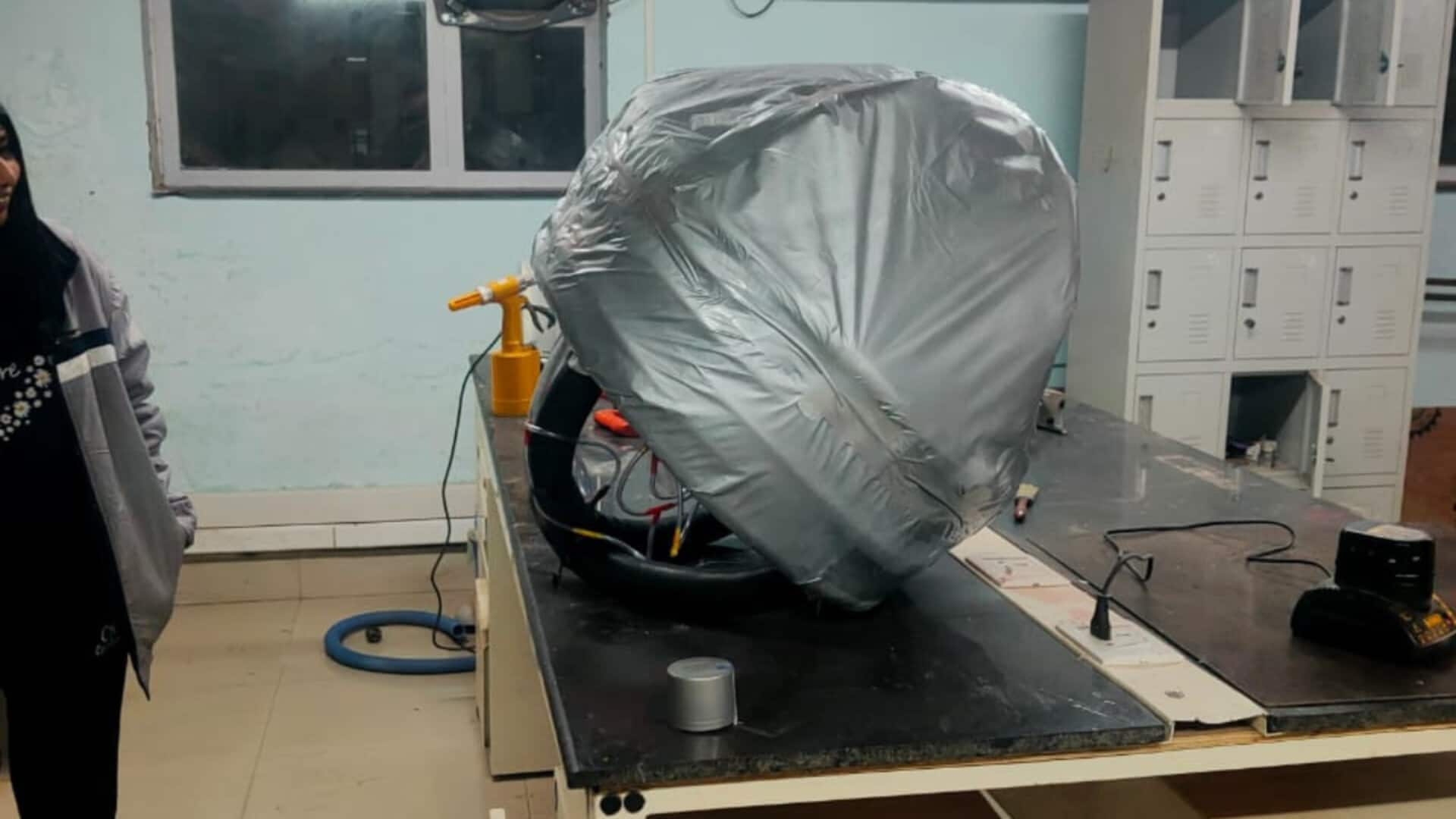
Bengaluru start-up developing 'expandable space habitat': Know its significance
What's the story
Akashalabdhi, a Bengaluru-based start-up, is developing an "expandable space habitat" to support India's burgeoning space ambitions.
Recognized by the Department for Promotion of Industry and Internal Trade (DPIIT), the company is focused on creating next-generation living quarters for astronauts, researchers, and potentially space tourists.
The firm's prototype model, 'Antariksh HAB' is ready.
The final model will fit six to 16 personnel, and offer better protection against orbital debris and radiation, than current space habitats like the International Space Station (ISS).
Expansion
A new approach to space living
In contrast to traditional space habitats, Akashalabdhi's 'Antariksh HAB' could be launched as a compact unit and later inflated in space.
"Once in the intended orbit of around 1,100km, it will take around seven days for the habitat to fully inflate," Siddarth Jena, CEO of Akashalabdhi told TOI.
The company has utilized seven layers of special materials for construction and holds a patent for its design.
Additional patents are pending, with critical tests having been conducted at ISRO facilities.
Sustainable space
Focus on sustainability and scalability
A significant aspect of Akashalabdhi's project is the development of closed-loop life support systems that recycle air, water, and waste.
Jena emphasized the company's commitment to sustainability, stating "we use soft materials, reducing the possibility of space debris generation by 82% compared to solid fixed structures."
The habitat's volume can be adjusted from 80-330 cubic meters based on customer needs.
Space real estate
The world's first 'space real estate company'
Akashalabdhi's Chief Business Officer, Manoj Mohan, shared the company's ambition to become the world's first 'Space Real Estate Company,' proposing a business model based on volume rather than area.
"This scalability could potentially support a variety of missions, from orbital research to lunar surface exploration," he said.
The company eyes multiple revenue streams, including leasing habitat space to government agencies, research institutions, and space tourism operators.
Future launch
Akashalabdhi's modular design and launch plans
The modular design of Akashalabdhi's habitat allows for future expansion and reconfiguration to suit various missions and crew sizes.
The company's Chief Financial Officer, Manjesh Mohan, stated that "individual components are easily replaceable or upgradeable."
The company aims to launch its first habitat by 2027 if all goes as planned.
"SpaceX has a launch program that could enable our launch and we are negotiating a slot as we speak," added Manoj Mohan.